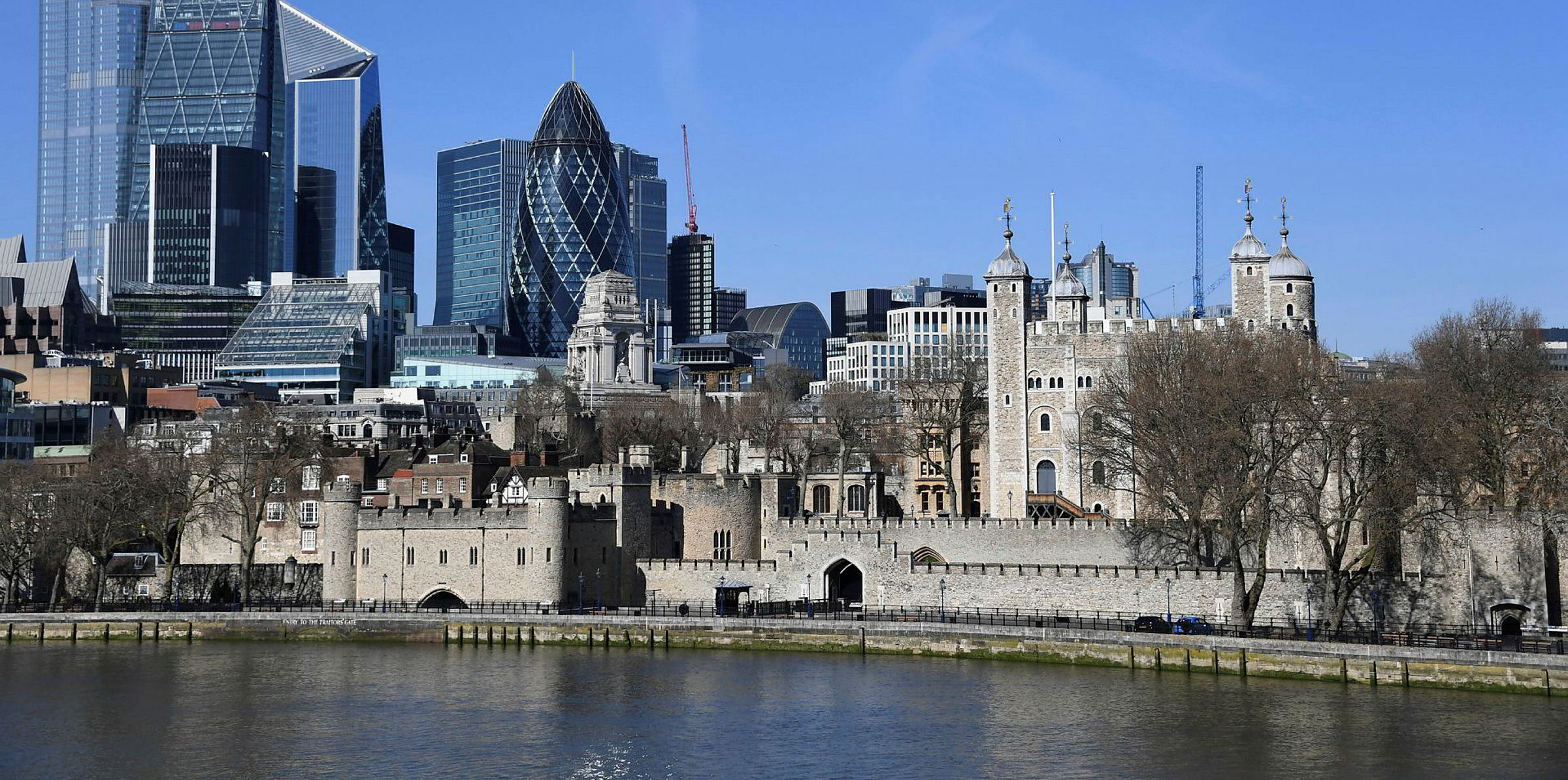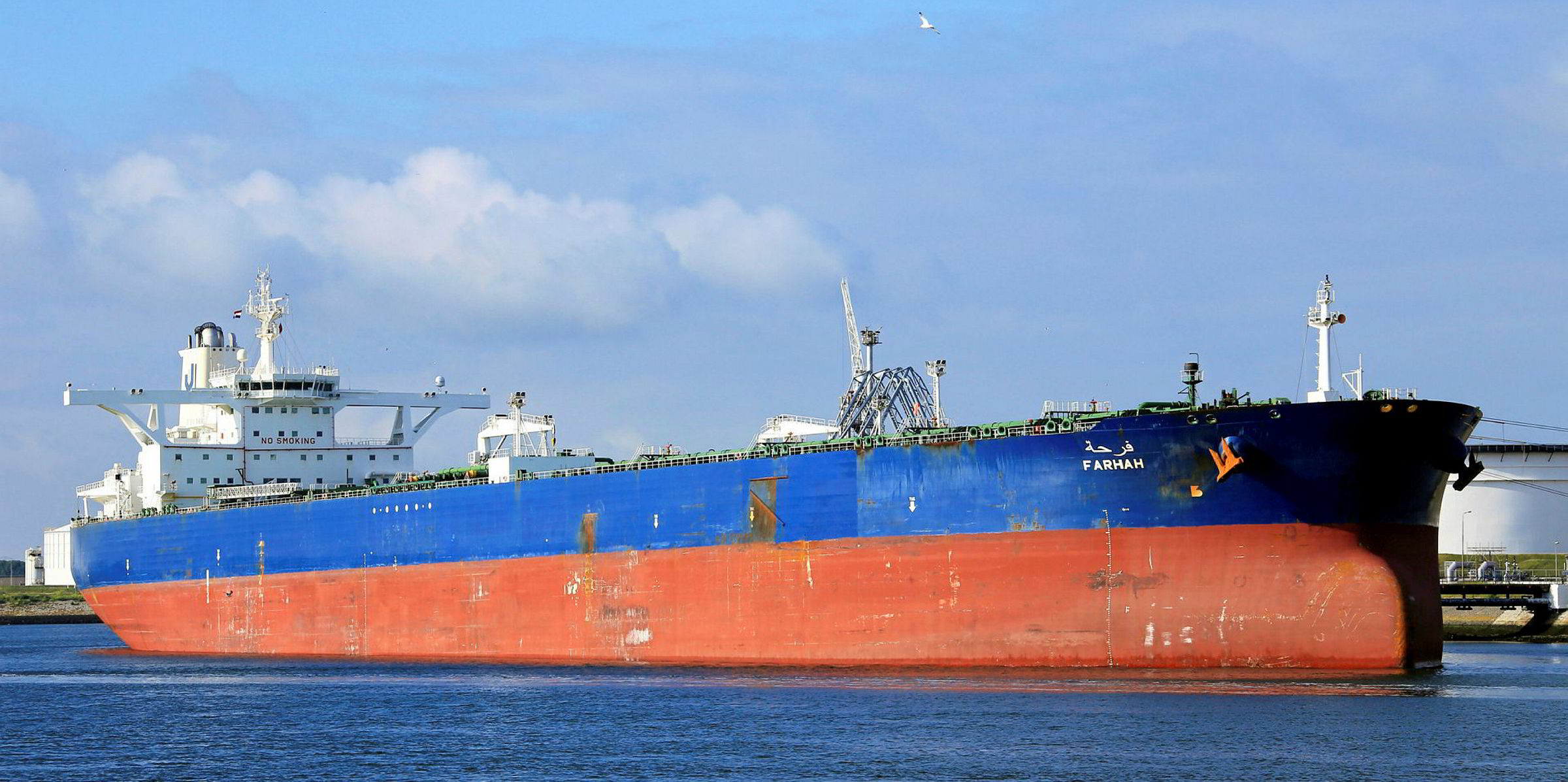The decision by credit ratings agency Moody’s to downgrade the whole shipping industry from “stable” to “negative” is unsurprising. The maritime sector has had a “horrible month” as the investment banking arm of shipbroker Fearnleys described it.
In what was a “rarity”, all shipping stocks covered by US investment bank Jefferies were down last week — on average by 22%.
In fact, shipping is facing worse external conditions than those that followed the 2008 financial crash.
In lockdown
China may be emerging from the worst of the coronavirus pandemic, but Europe and the US are now effectively shut for business.
With Wall Street in free fall, Goldman Sachs expects the US economy to shrink by an annualised rate of 24% from April to June.
This is three times worse than the lowest quarterly level seen after 2008. Analysts at Oxford Economics predict a less alarming downturn of around 12%, while JP Morgan Chase predicts it may be closer to 14%.
But all these numbers are huge compared with the 8.4% decline in US output seen at the height of the banking crisis.
US President Donald Trump claims his nation will bounce back within weeks even as the World Health Organization warns the world’s biggest economy could become the “epicentre” of the outbreak. Few economists believe him.
New data on business activity from global information provider IHS Markit shows the confidence of European purchasing managers is at its lowest level since the late 1990s.
German Federal Minister of Finance Olaf Scholz predicted this week that his nation's economy would shrink by 5% this year.
Let's spare more than one thought for the growing number of seafarers either stuck on board ships or on the quayside
The UK's Financial Times reported that a survey of European consumers found one-third of them expected they, or a household member, would lose their job.
Firing line
In the firing line for the shipping industry — at least according to Moody’s — are container and dry bulk operators.
This clearly makes sense, although you can surely add those in the energy sector such as the owners of offshore support vessels and gas carriers.
Clarksons highlights car carrying as another sector that will be badly hit amid reports from big manufacturing areas such as South Korea that its vehicle makers saw output dive by nearly 30% in recent weeks, partly due to the difficulty of obtaining parts from China. European plants are also closing.

Leading car carrier operator Wallenius Wilhelmsen has already announced plans to lay up 10 of its vessels and scrap another four.
The tanker industry has been relatively shielded from the carnage by the collapse in Brent blend oil prices to below $30 per barrel.
Traders are keen to take advantage of these price levels, and demand for vessels — some to be used for storage — has increased.
This is one of those unusual moments when future crude values are at higher levels than the immediate spot price — a so-called contango market.
Rates for VLCCs had rocketed to record levels in recent weeks but were soon heading back down to Earth again.
Shipbroker Fearnleys reported VLCC hire rates of $100,000 per day this week between the Middle East and South Korea — down by more than 50% on mid-March levels.
Cheap oil should be good for tankers as demand in normal times might be expected to increase — but these are not normal times.
But one of the key oil-producing centres — the US shale frackers — is itself in trouble as many of the drillers need high prices to survive.
The oil price drop has been driven by the coronavirus, as well as the decision by Russia and Saudi Arabia to open the production taps.
Profit warning
Cheap oil benefits all shipping by reducing the cost of bunkers, but this will have a small impact on overall industry profit levels. Moody's predicts Ebitda earnings from the industry to fall by up to 30% in 2020 after rising 40% last year.
And, of course, in among all this financial concern, it is easy to overlook the human factor, on which all shipping still depends.
Let's spare more than one thought for the growing number of seafarers either stuck on board ships or on the quayside.
One charity body — Human Rights at Sea — reports some crews are going without wages or having to pay for their own hotel bills as the coronavirus causes chaos with vessel schedules and management.
No one wants to lose money, but we certainly do not want to lose our souls in all of this.







